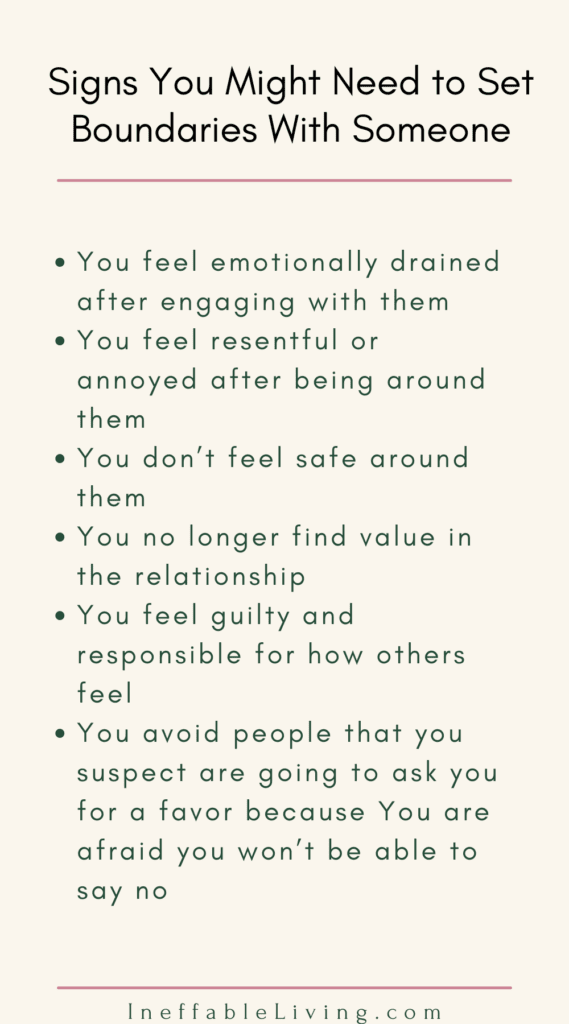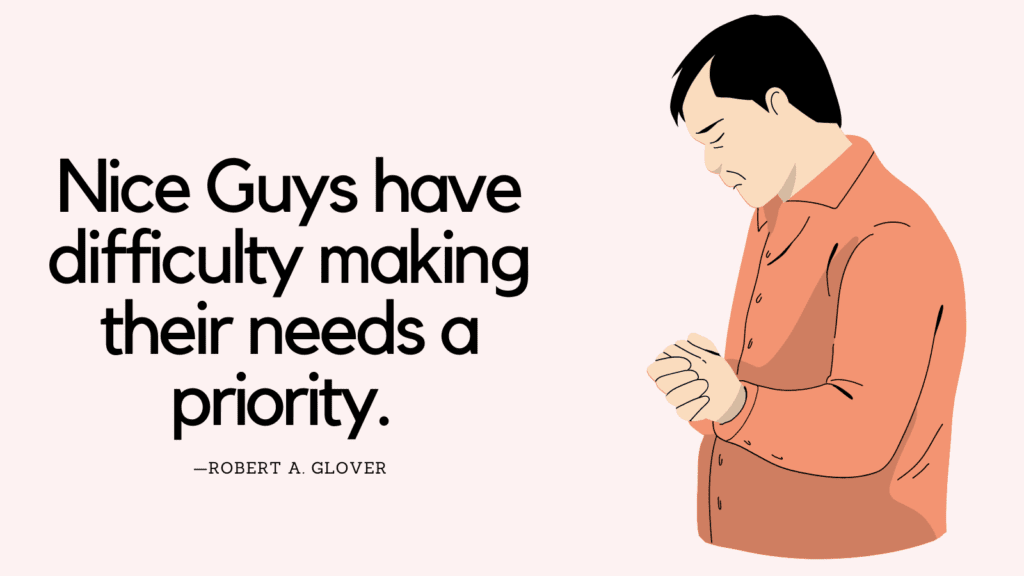This post contains some of the best nice guys finish last quotes.
Who Is The Nice Guy?
The term “nice guy” typically refers to someone who presents themselves as kind, considerate, and accommodating in their interactions with others, particularly in the context of romantic relationships.
However, it is important to note that the term has often been used to describe a specific type of behavior that can be problematic.
In some cases, the so-called “nice guy” may engage in manipulative or passive-aggressive behaviors while expecting recognition or rewards for their perceived kindness.
This can stem from a sense of entitlement, where they believe that their good deeds entitle them to certain outcomes, such as romantic or sexual attention.
Such individuals may also struggle with low self-esteem, seeking validation and self-worth through external sources rather than developing a genuine sense of self.
It’s essential to differentiate between being genuinely kind and compassionate versus engaging in manipulative behavior in the name of being a “nice guy.”
Genuine kindness involves empathy, respect, and consideration for others without ulterior motives or expectations.
Nice Guys Finish Last Quotes
1. “Nice Guys seek approval from others. A universal trait of the Nice Guy Syndrome is the seeking of validation from others. Everything a Nice Guy does or says is at some level calculated to gain someone’s approval or avoid disapproval. This is especially true in their relationships with women.”—Robert A. Glover
2. “Nice Guys avoid conflict. Nice Guys seek to keep their world smooth. To do this, they avoid doing things that might rock the boat or upset anyone.”—Robert A. Glover
3. “Nice Guys are passive-aggressive. Nice Guys tend to express their frustration and resentment in indirect, roundabout, and not so nice ways. This includes being unavailable, forgetting, being late, not following through, not being able to get an erection, climaxing too quickly, and repeating the same annoying behaviors even when they have promised to never do them again.”—Robert A. Glover
4. “Nice Guys are full of rage. Though Nice Guys frequently deny ever getting angry, a lifetime of frustration and resentment creates a pressure cooker of repressed rage deep inside these men. This rage tends to erupt at some of the most unexpected and seemingly inappropriate times.”—Robert A. Glover
Related: Nice Guy Syndrome Test (+Best 19 Practical Strategies To Overcome The Nice Guy Syndrome)
5. “Nice Guys believe they must hide their perceived flaws and mistakes. These men are afraid that others will get mad at them, shame them, or leave them if some mistake or shortcoming is exposed.”—Robert A. Glover
6. “Nice Guys seek the “right” way to do things. Nice Guys believe there is a key to having a happy, problem-free life. They are convinced that if they can only figure out the right way to do everything, nothing should ever go wrong.”—Robert A. Glover
7. “Nice Guys are addictive. Addictive behavior serves the purpose of relieving stress, altering moods, or medicating pain. Since Nice Guys tend to keep so much bottled up inside, it has to come out somewhere. One of the most common addictive behaviors for Nice Guys is sexual compulsiveness.”—Robert A. Glover
8. “Nice Guys repress their feelings. Nice Guys tend to analyze rather than feel. They may see feelings as a waste of time and energy. They frequently try to keep their feelings on an even keel.”—Robert A. Glover
Related: What Do Boundaries Sound Like? + 35 Boundaries Examples
9. “Nice Guys have difficulty setting boundaries. Many Nice Guys have a hard time saying “no,” “stop,” or “I’m going to.” They often feel like helpless victims and see the other person as the cause of the problems they are experiencing.”—Robert A. Glover
10. “Nice Guys are usually only relatively successful. The majority of Nice Guys I’ve met have been talented, intelligent, and moderately successful. Almost without exception though, they fail to live up to their full potential.”—Robert A. Glover
11. “Nice Guys often try to be different from their fathers. Many Nice Guys report having unavailable, absent, passive, angry, philandering, or alcoholic fathers. It is not unusual for these men to make a decision at some point in their lives to try to be 180 degrees different from Dad.”—Robert A. Glover

12. “Nice Guys are often more comfortable relating to women than to men. Due to their childhood conditioning, many Nice Guys have few male friends. Nice Guys frequently seek the approval of women and convince themselves they are different from other men. They like to believe that they are not selfish, angry, or abusive — traits they link to “other” men.”—Robert A. Glover
Related: Healthy Boundaries Quiz (+Free Pdf Worksheets)
13. “Nice Guys have difficulty making their needs a priority. These men often feel that it is selfish to put their needs first. They believe it is a virtue to put others’ needs ahead of their own.”—Robert A. Glover
14. “Nice Guys frequently have problems in intimate relationships. Though Nice Guys often put tremendous emphasis on this part of their lives, their intimate relationships are frequently a source of struggle and frustration.”—Robert A. Glover
15. “Nice Guys often make their partner their emotional center. Many Nice Guys report that they are only happy if their partner is happy. Therefore they will often focus tremendous energy on their intimate relationships.”—Robert A. Glover
16. “Nice Guys are controlling. A major priority for Nice Guys is keeping their world smooth. This creates a constant need to try to control the people and things around them.”— Robert A. Glover
17. “Nice Guys give to get . Though Nice Guys tend to be generous givers, their giving often has unconscious and unspoken strings attached. They want to be appreciated, they want some kind of reciprocation, they want someone to stop being angry at them, etc. Nice Guys often report feeling frustrated or resentful as a result of giving so much while seemingly getting so little in return.”— Robert A. Glover
Related: Top 25 Tips On How To Set Boundaries In A Toxic Relationship? (+FREE Worksheets PDF)
18. “Nice Guys are dishonest. These men hide their mistakes, avoid conflict, say what they think people want to hear, and repress their feelings. These traits make Nice Guys fundamentally dishonest.”—Robert A. Glover
19. “Nice Guys are secretive. Because they are so driven to seek approval, Nice Guys will hide anything that they believe might upset anyone. The Nice Guy motto is, “If at first you don’t succeed, hide the evidence.””—Robert A. Glover
20. “Nice Guys are manipulative. Nice Guys tend to have a hard time making their needs a priority and have difficulty asking for what they want in clear and direct ways. This creates a sense of powerlessness. Therefore, they frequently resort to manipulation when trying to get their needs met.”—Robert A. Glover
21. “We might be tempted to minimize the problem of the Nice Guy Syndrome. After all, how can being nice be such a bad thing? We might even chuckle at the Marvin Milquetoast behaviors of these men as portrayed in comic strips and television sitcoms. Since men already represent an easy target in our culture, the caricature of a sensitive guy might be an object of amusement rather than concern. Nice Guys themselves frequently have a difficult time grasping the depth and seriousness of their beliefs and behaviors.”— Robert A. Glover
Related: How To Set Boundaries With Narcissistic Parents?




